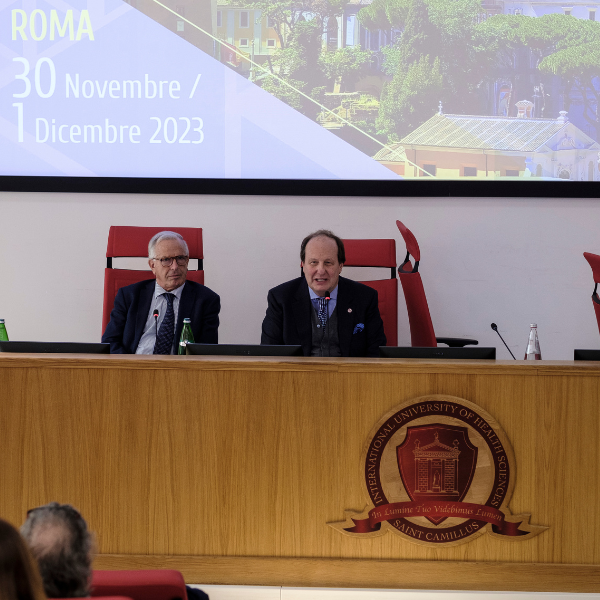There is a need for more systematic use of Medically Assisted Reproduction (MAR) techniques. This is the message that has emerged from the congress of the Società Italiana della Riproduzione (SIdR) held at UniCamillus on 30 November and 1 December 2023. The event was organised by the President of the SIdR, Professor Ermanno Greco, who is also Professor of Gynaecology and Obstetrics at UniCamillus. The congress was held in collaboration with the Società Italiana Policistosi Ovarica (SIPO). During the discussions, many issues were raised in an open debate with all the doctors and researchers present, focusing on the challenges that a country like Italy, which is dramatically stuck at a 0-growth rate, will have to face in the immediate future and, in part, is already facing now.
Increasing infertility and ongoing changes in society leading women to choose to have children later in life are two of the main factors influencing the decline in Italy’s birth rate. Data shows that Italy has around 1.6 children per woman, well below the minimum sustainability level of 2.1. There are many reasons for this, ranging from environmental pollution (which leads to male infertility) to job insecurity and a lack of services. The consequences of this decline are equally varied but inevitable, with a social system in serious danger of collapsing if the annual balance between births and deaths remains negative for a long time. Assisted reproduction, with new in vitro fertilisation (IVF) techniques which can now guarantee much higher success rates than a few decades ago, is one way of alleviating this situation.
In Italy, IVF currently accounts for about 3% of births ‒ that’s almost 11,000 births ‒ but this is still too low. The SIdR, thanks to its president Greco, has been insisting for some time on the need to speed up the approval process for new MAR techniques. “Assisted reproduction techniques“, Professor Greco has declared, “must now face this new challenge ‒ family planning ‒ and no longer focus on a single attempt at artificial insemination itself. A series of interventions must be planned to create a family, overcoming today’s obstacles: advanced maternal age and the increase in male infertility”. UniCamillus Rector, Gianni Profita, who allowed the congress to take place in the lecture theatre of the UniLabs buildings, commented on the importance of such a meeting: “The decline in birth rates is a tragic fact that we are experiencing strategically. One of our missions as a medical University is precisely to help increase the number of births. For this reason, anything that can help address the scientific problem of reproduction is certainly welcome”.

